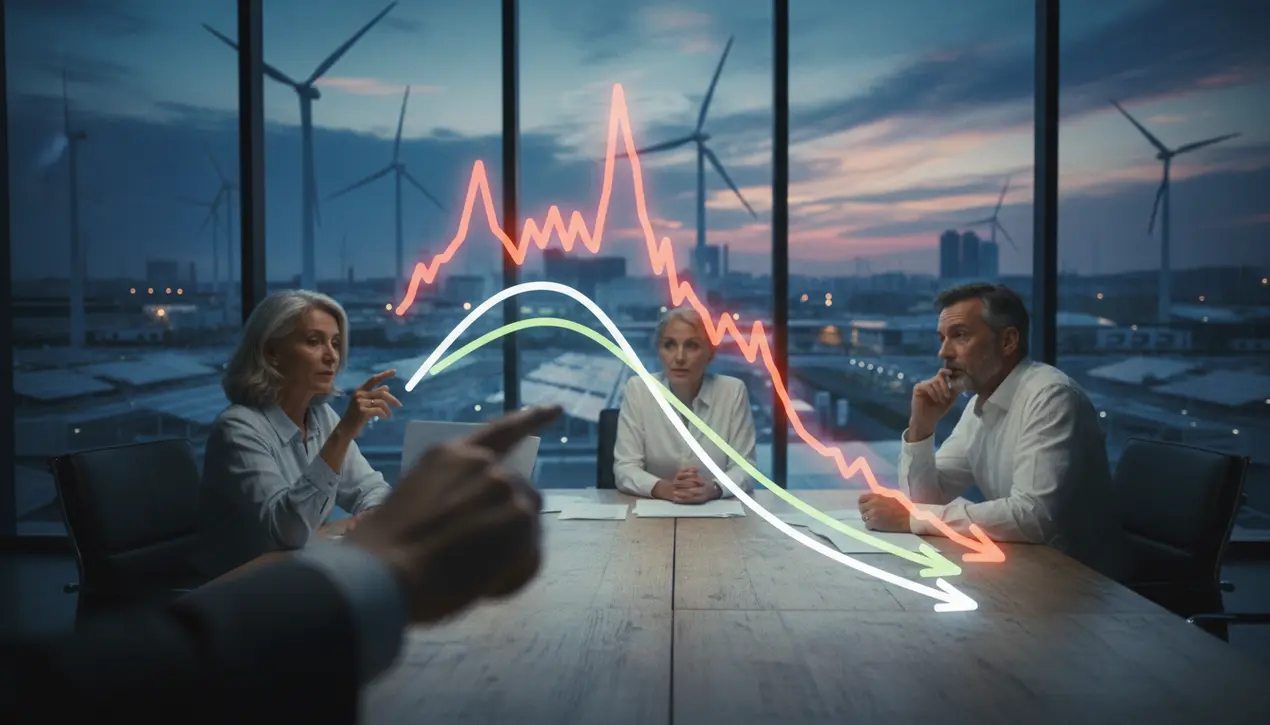
Scienceclimate scienceClimate Change
This chart shows that progress has actually been made on climate change.
RA
Rachel Adams
2 hours ago7 min read3 comments
A decade's worth of global energy data reveals a quietly unfolding revolution that challenges our prevailing climate pessimism. While political headlines often suggest stagnation, the hard numbers compiled by the International Energy Agency paint a different picture—one of tangible, measurable progress.The most telling evidence lies in a simple chart comparing emission projections. The top line, a 2014 forecast predicting where greenhouse gases would be with the policies of that era, now looms like a ghost of a forsaken future.Beneath it, the middle line—representing our current trajectory based on enacted policies—shows a significant divergence, a gap carved out by the relentless ascent of wind and solar power. This isn't a marginal adjustment; it's a fundamental shift in the planet's energy metabolism, driven largely by policy foresight in nations like China, which has become a renewable manufacturing juggernaut, Germany, with its pioneering Energiewende, and the United States, where tax credits initially seeded a now-flourishing industry.The economics have become undeniable: clean energy is now frequently the cheapest option, creating a momentum that persists even when political will falters. As philanthropist Bill Gates recently argued in his controversial memo, this progress is the overlooked story of climate change, a narrative of incremental wins that accumulate into meaningful change.Yet, this is no time for complacency. The lower line on the chart, depicting a path where all proposed climate policies are implemented, shows how much further we could go, but also how much warming is already locked into our system.The role of natural gas as a 'bridge fuel' displacing coal is a complex part of this story—it has provided short-term emission relief but introduces its own long-term dependency and methane leakage concerns. As Zeke Hausfather, a climate scientist at Berkeley Earth, cautions, past progress does not guarantee future action; the trajectory of the 21st century hinges on leadership.The difference we are debating now is not between a good outcome and a bad one, but between severe and catastrophic. The climatic impacts are already upon us, manifesting in intensified wildfires, floods, and heatwaves.The progress of the last decade has merely bought us a slightly less dire future, turning what could have been an unmitigated disaster into a manageable, though still profoundly challenging, crisis. This is the sobering reality of our energy transition: we are racing against a clock that we ourselves set, and while we have slowed the countdown, we have not stopped it.
#featured
#climate change
#emissions
#IEA
#Bill Gates
#clean energy
#progress
#global warming
Stay Informed. Act Smarter.
Get weekly highlights, major headlines, and expert insights — then put your knowledge to work in our live prediction markets.
Comments
Loading comments...
© 2025 Outpoll Service LTD. All rights reserved.